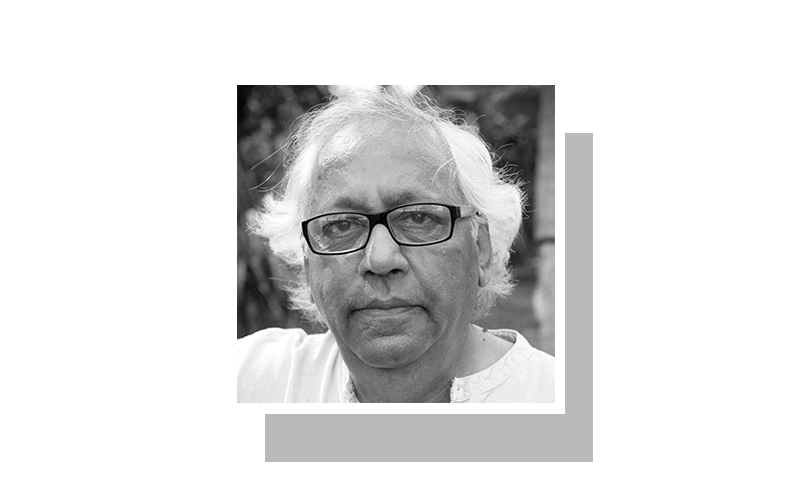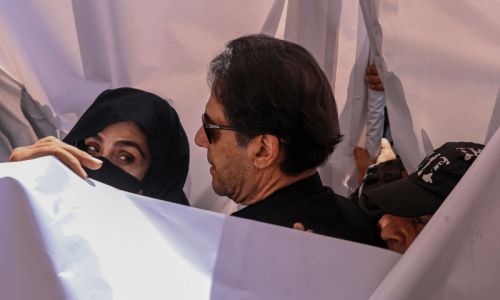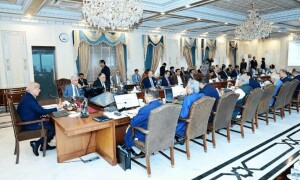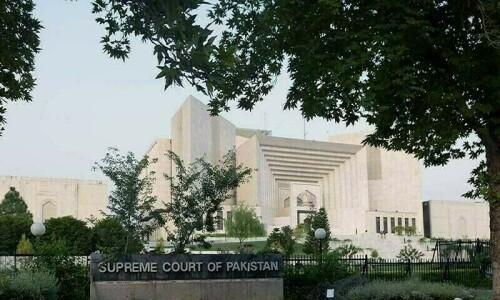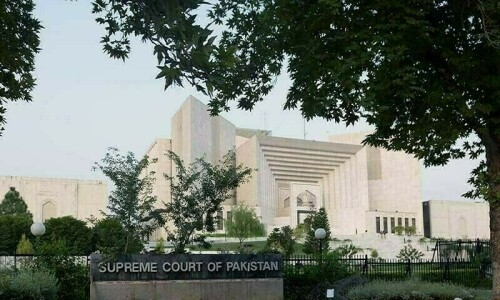HOLD a meeting of the Cabinet Committee on National Security: check. Call a corps commanders conference: check. Set up an inquiry committee to investigate the recent Taliban attack on Karachi airport: check.
With all the boxes ticked, the government can claim it has done all it could, and move on. For over two decades, successive governments have put this well-oiled procedure into action in the wake of every terrorist atrocity. But once the blood has dried and the headlines are forgotten, Pakistan sleepwalks to the next attack.
No lessons are ever learned, no improvements in security ever implemented. Einstein once defined insanity as doing the same thing over and over again, and expecting different results. Forever reacting to events — and in slow motion at that — our security forces are unable to match the ferocity, the meticulous planning and the motivation of their foe.
We have seen endless delay and confusion.
Around this time last year, some of us dared to hope that with Nawaz Sharif’s return, there might be a greater focus on the Taliban threat. After five years of incompetence and inaction, we thought that a businessman prime minister would focus on the need to neutralise the Taliban, if only because it would be good for investment.
Dream on. In retrospect, this misplaced expectation was a victory of hope over experience. Over the security issue, we have witnessed foot-dragging, confusion and incompetence of an order that has even surpassed the previous government’s record.
Even though the so-called peace talks have long been moribund, they are now finally dead in the water. Even Nawaz Sharif and Imran Khan can no longer use the prospect of peace as a fig leaf to cover their fears and their not-so-secret sympathy for the killers who have slaughtered over 50,000 Pakistanis.
In the wake of the attack on Karachi airport, I heard a retired general say on a TV channel that the security forces had responded valiantly, and should not be criticised. He went on to remark that such attacks were difficult to prevent, and gave the 9/11 attacks in the US and the 7/7 attacks in London as examples.
If this represents serious military analysis, we are in more trouble than I thought. The attacks the general cited were against soft civilian targets. For a country that has seen its army headquarters, an air force installation and a naval base attacked to deadly effect to still be so vulnerable is a commentary on our incompetence.
But why should we be surprised? Our vaunted intelligence agencies may be very effective in silencing journalists and twisting the arms of politicians, but have failed in their primary duty of foiling terrorist plots. As somebody tweeted recently, for a security state, Pakistan has very little security.
One would have thought that having sowed the seeds of Islamic militancy, the ISI might have some contacts within jihadi organisations that would allow it to forestall attacks. But due to its connivance or incompetence, we are constantly blindsided by the Taliban and their various affiliates.
In the aftermath of the Karachi attack, we have witnessed the usual blame game between the federal and Sindh governments. The former says a warning of an impending attack was sent a few weeks ago, while the latter insists that airport security is a federal responsibility. These finer bureaucratic points will give scant comfort to the families of those killed. Clearly, the PPP government in Karachi has been unable to crack the Taliban sleeper cells in the provincial capital, or to intercept the large consignment of arms used in the attack.
But the federal government’s lapses are far greater. If it had advance information, why was not security at the airport beefed up? After each attack, inquiries have pointed out the obvious deficiencies in training, equipment and leadership our police and paramilitary forces like the Airport Security Force suffer from.
Ironically and idiotically, the ASF still uses the ‘explosives detector’ that was proven to be a fraud run by a now-convicted British conman. These metal rods, mounted on handles, were bought by agencies around the world in an elaborate scam, but long after the fraudster was arrested and sentenced, we continue to rely on them.
Time and again, terrorists have used uniforms as disguise when penetrating high-security installations. Surely it is not rocket science to counter this obvious ploy. With millions being spent on luxury cars for politicians, bureaucrats and generals, surely we can spare some cash to acquire high-tech security equipment.
And if our military and intelligence establishment cannot provide us with security, why not import expertise from abroad? After all, we acquire the services of foreign consultants in every field, so why not security? It would appear that our generals are so puffed up with a sense of their own professional competence that they cannot bring themselves to admit that they could learn from foreigners.
Einstein also said: “Only two things are infinite, the universe and human stupidity, and I’m not sure about the former.”
Published in Dawn, June 14th, 2014

